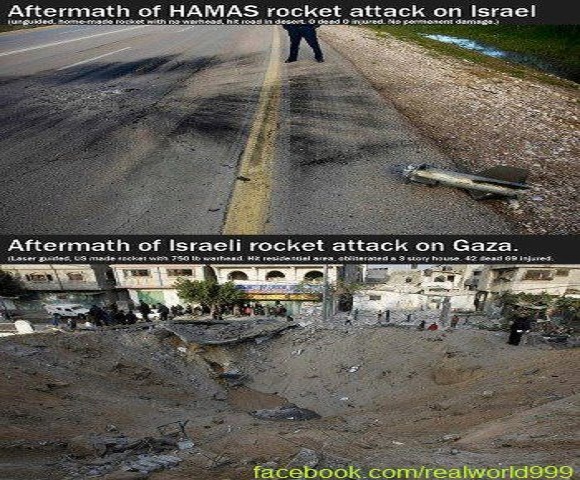Jonathan Kay: How Israel’s Iron Dome won the war
Jonathan Kay | Nov 20, 2012 11:06 AM ET
Egypt, the United States, the UN and various other international actors have been pushing hard for a ceasefire between Hamas and Israel. Benjamin Netanyahu is looking for a way to avoid a ground invasion, and likely would stick to a deal that puts an end to both Hamas rockets and Israeli air strikes on a simple quid pro quo basis. But Hamas is in a more complicated position: Its only currency in the region comes from its ideologically inflexible, openly terroristic opposition to the existence of the Jewish state. And so, in its rivalry with the Palestinian Authority, Hamas needs to show that its addiction to violence is bearing fruit.
But despite the spasm of Arab cheerleading that predictably has flared up during the actual fighting, Hamas hasn’t done much with its hundreds of launched rockets except kill three people in Kiryat Malachi — a rounding error on the number of Hamas fighters that Israel has killed. A mere ceasefire, at this point, will be seen, once the dust settles, as a Hamas defeat.
That is not the narrative that has dominated in the Western media, of course. Reporters have highlighted the “changing face” of the Middle East — what with Turkey, Qatar, Egypt and other Muslim nations expressing some measure of support for Hamas. Then again, reporters always like to recast this or that event as a watershed in the march of humanity. And it’s questionable how much really has changed. The million-strong pro-Palestinian marches in the vaunted “Arab Street” that we always are promised never seem to materialize. Moreover, the Hamas brand will continue to be problematic for Arab leaders, especially since Gaza is a spawn of terror in Egypt’s Sinai peninsula, not just in Israel.
During Gaza’s brief Palestinian civil war, recall, Hamas thugs killed pro-Fatah activists by throwing them out of windows. And this week, Hamas gunmen summarily executed a half dozen men alleged to be Israeli “collaborators” — with one of the bodies chained to a motorcycle and dragged through Gaza City. All of Hamas’ major weapons systems come through Iran, which has become a despised entity in the Sunni Arab world thanks to its support for Bashar Assad, the butcher of Damascus. Sound like the sort of fellows Mohammed Morsi wants to be surrounded with in a photo-op?
The 2006 Lebanon War, in which Hezbollah militia were able to inflict significant casualties on an Israeli invasion force, also was billed as a “victory” for Arab militants. Yet in hindsight, it was nothing of the kind. Much of Lebanon was smashed to smithereens, and many Lebanese citizens asked the simple question: “For what?” Hezbollah has been relatively well-behaved ever since, and has set off nary a firecracker during the current fighting. Deterrence sometimes works, it seems, even with terrorists. (At least, it sometimes works in the case of terrorists who control their own geographical enclave, seek out a popular constituency among local residents, and therefore have something to lose by initiating a nihilistic military confrontation that they have no hope of winning.)
In the war’s aftermath, Hamas will be left to survey a scene of wreckage in the Gaza Strip — all for nothing. Worse than nothing, because Hamas will have seen its missile stock either destroyed on the ground or squandered in largely useless attacks against Israel. Hamas munitions factories that took years to build were destroyed by Israeli bombs in days. The war will heighten Israel’s determination to prevent more Iranian missiles from entering Gaza, a project that already seems to have taken a muscular turn in Sudan.
One theory is that Hamas has won merely by demonstrating its ability to “strike fear” in the hearts of Tel Aviv and Jerusalem through its Fajr-5 missiles. But even this propaganda “victory” arguably was turned on its head by Israel’s deployment of Iron Dome — a mobile, locally-developed short-range air defense system. Iron Dome did not, and probably cannot, stop all incoming threats. But it did a good job stopping the missiles that were aimed at the most important urban targets. Indeed, it likely was thanks to the capabilities of Iron Dome that Israel has (thus far) been able to avoid a Gaza ground war: Had just one large missile landed in a populated portion of a major Israeli city, the pressure for an invasion would have been irresistible.
In Tel Aviv, in particular, the spectacle of Iron Dome intercepting an incoming missile actually created a massive morale boost for residents, many of whom truly were paralyzed by fear at the time. In some ways, it duplicated the inspiring experience that Londoners had when they saw British planes knocking Messerschmitts out of the air 72 years ago.
Iron Dome is a product of Israeli genius (Rafael Advanced Defense Systems, to be more precise). But it is also a fitting symbol of the Israeli spirit itself — being a groundbreaking work of high-tech engineering designed to save lives and protect property in one of the world’s most dangerous corners.
In Gaza, meanwhile, mothers and fathers are championing the Gaza spirit by encouraging their sons to go out and kill Jews any way they can.
Funny how people are different that way.
National Post
jkay@nationalpost.com

